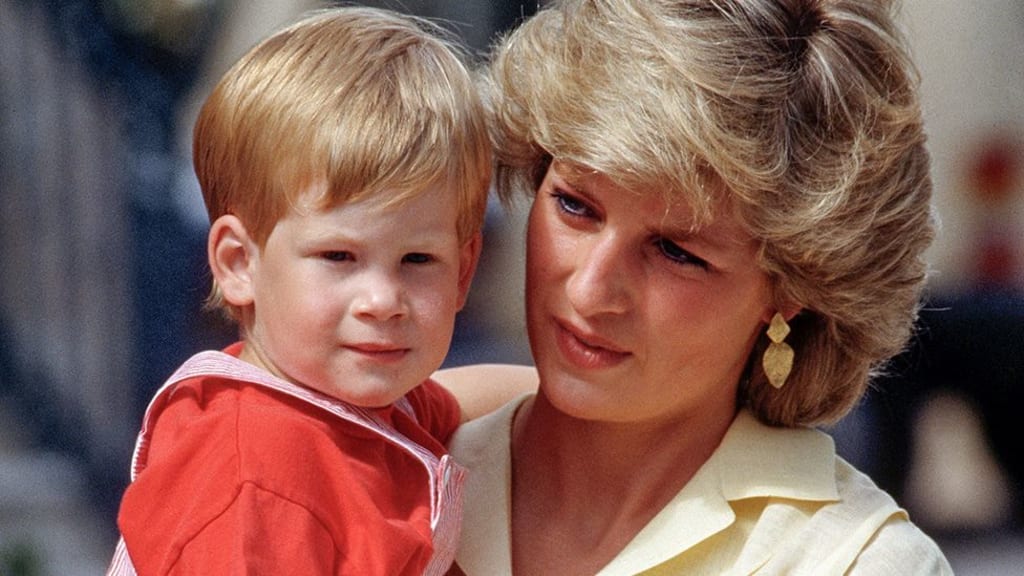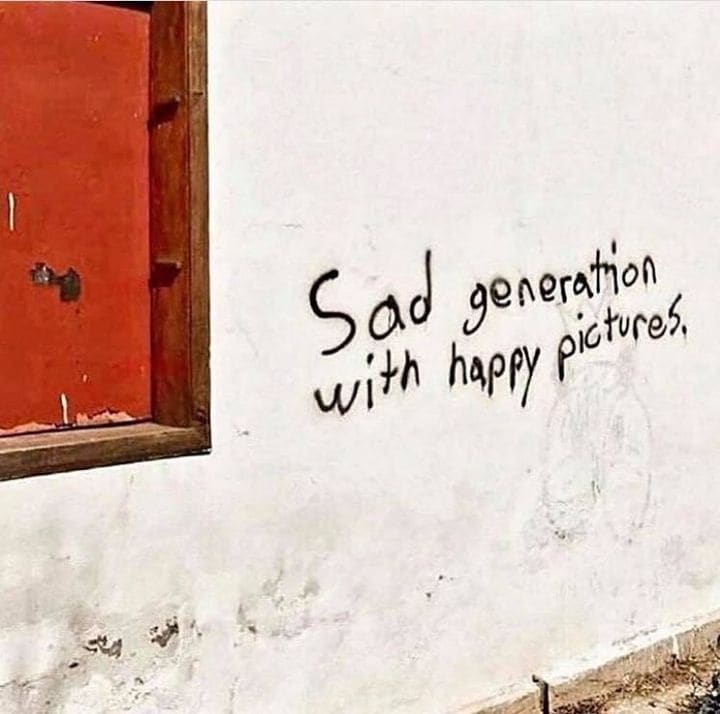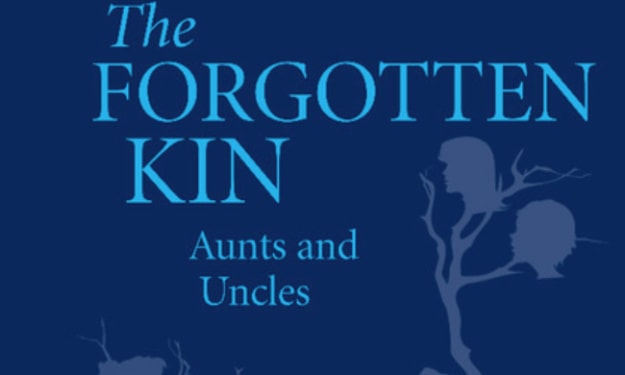Bittersweet Sympathy
Or, The Long-Winded Answer As To Why I Don't Have Instagram

I personally don’t much care for the current media obsession with Harry and Meghan, especially when newspapers will side-line incredibly important coverage of the ongoing NHS crisis in favour of extracts from the former’s recently published autobiography. I don’t hate them. I don’t love them. I just don’t care. But whatever you think of this couple, one thing you cannot deny is that Prince Harry is a man who lost his mother at a very young age and had to grieve for a woman he loved dearly while the whole population and tabloid media, many of whom had probably never even met her, broadcasted the same level of grief all over the world. If anyone hasn’t seen Stewart Lee’s routine about the lunacy of the reaction to Diana’s death, it sums it up very nicely (link below).
But, anyway, that got me thinking about something that’s been on my mind for a while now, which is the complicated and ever-changing relationship that human beings have with not only the modern media and internet age, but the idea/acceptance of death. Strikingly, Diana’s death and its reaction took place before the internet as we know it today, but the hysteria that engulfed the world wasn’t a far cry from what we would expect now. The most hilarious newspaper correction in history was published that day, and I believe it wasn’t the only one:

And it is mad, that our opinions of people do suddenly change when they die, especially if they die young or in unfortunate circumstances. We suddenly realise that all those opinions we had weren’t really fair. And I mean, often that is the case. It’s true that you never know when the last time you speak to someone is going to be, and you should try and always be understanding to those you care about. But that doesn’t mean you aren’t allowed opinions, or not allowed to dislike someone for very good reason. People have a go at me all the time for wishing death so easily on people who’ve wronged me (I don’t mean it, but, no, I’m probably not going to be crying at their funeral, why would I go to the funeral of someone I hated?), and that is something I need to work on. But all the time I see people suddenly become saints in death. I think it’s something we’ve always thought when we stopped regularly killing each other (well, most of us). It’s just in our nature to show respect. And that’s fair enough. But, in this internet age, all the time I see people attach themselves to someone they barely know, and plaster it all over their social media (I remember hearing countless stories of people who asked for a day off work when David Bowie died). Call me cynical, but it seems to me that the hysteria that has existed in factions of our society for so long has blossomed with the event of social media.
Grief, perhaps because it has for centuries been something we as human beings have struggled to comprehend, has become a strong magnet for online traffic. Don’t believe me? Consider this influencer’s choice for an Instagram obituary to her father:

I believe the woman in question doubled down after the criticism she received, and that’s fair enough. I’m not saying she’s done anything wrong. It isn’t my place to judge her. And I’ve certainly never lost a parent, which she appears to have done so at a fairly young age. I believe her interesting attempt to convey her feelings drew a large amount of ire from Piers Morgan, much like Harry and Meghan’s attempt to convey theirs.

I’m not Piers Morgan. All I’m questioning is whether this “Instagram” culture is very healthy on the whole. I think the hold Instagram and similar platforms have on people today is far too strong. The internet is not real life and it’s not the real world. Yet far too many people see them as one and the same. When Russia banned Instagram this year, it appeared to be, judging by reports, the most damning action of the year in the opinions of young Russian people! Really?!? But maybe I’m wrong. I don’t have Instagram for the reasons I’ve stated, but maybe, therefore, I’m (once again) not in a position to comment. Perhaps that’s true. To return to Harry and Meghan, here we have a case study in Instagram success. The platform helped the Sussexes to build their brand and following, and seemed to suit the life they had chosen. Because of that, the trajectory they have taken recently does not surprise me.
Now, as I’ve stated (despite writing an article about it), I really don’t care much for the personal lives of these two incredibly rich and privileged people, but I don’t want to knock Prince Harry for being open and honest about his mental health and his struggles, especially when much of it stems from losing his mother. As I’ve written in previous pieces, far too many young men don’t talk about these things, and I’m glad he is willing to.
I’m just not sure the whole intense, media-driven and complicated way he has done so is really healthy. I don’t see an endgame here where he is happy. But I also don’t think he’s a bad person and I don’t blame him for trying to do what, in this modern age, he probably feels is right. I think it all goes back to the hysterical world he’s lived in when he lost his mother. Like the influencer before, or the people who take smiley selfies at Auschwitz, I’m not really sure collating tragedy with the kind of attention that they’re used to, and has worked out so well before, is really what they need here. And, yes, I understand. I think the hardest part, for me anyway, when you lose someone, or go through a tragedy, is the fact that you appreciate for once that everyone is being so nice to you. It can be bittersweet. But, just like those last-minute headline changes in 1997, it’s hollow. It’s our collective effort to understand something we famously don’t. And, above all, it’s temporary. Your boss might’ve sent you a nice sympathy e-card, but they’ll probably be screaming down your throat this time next month.
Many people post on Instagram about losing loved ones or anniversaries. Often I imagine it’s just the easiest way to let people know. Often it’s just because that really is the best way to cope for some people. But sadly, sometimes, like the young lady in the photo, I think it’s because it’s the only way people know when trying to understand their own grief. But that isn’t true. There are real people and a real world and not everything has to be seen through the lens of Instagram.

I could be wrong. Death, grief, tragedy and our reaction to them, are things that I feel will be complex forever. Many cultures and religions have tried to provide answers to help people cope with the despair. In our modern age, I feel social media itself is a form of religion, a spiritual successor to the tabloid media that came before it. And like all other religions, it tries to provide simple solutions to that very complicated problem. I just don’t think it’s the answer. The answer is in humanity; it comes from within.
And for the man who had to grieve his mother alongside the world, and sadly knows no different, I genuinely wish him and his wife the best. I hope they can reconcile with the people they love. And maybe, when that happens, the world won’t even hear about it. And that won’t matter.
About the Creator
Matty Long
Jack of all trades, master of watching movies. Also particularly fond of pizza, watching football, country music, travelling, and … tea.
X: @eardstapa_
Enjoyed the story? Support the Creator.
Subscribe for free to receive all their stories in your feed. You could also pledge your support or give them a one-off tip, letting them know you appreciate their work.






Comments
There are no comments for this story
Be the first to respond and start the conversation.